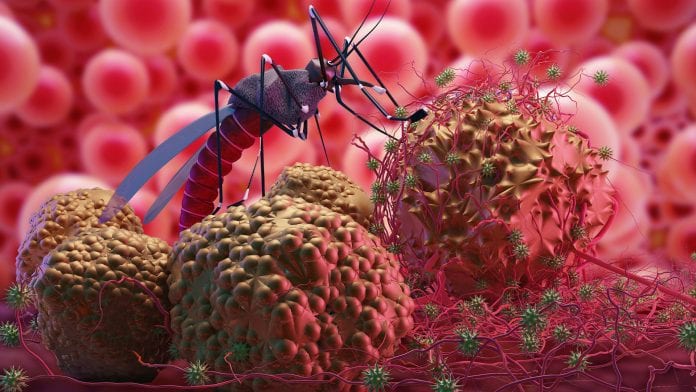Despite the huge burden of malaria in Nigeria, the treatment of the disease in the country is still majorly donor-driven.
Nigeria alone contributes 27 per cent of global malaria cases and 23 per cent of global Nigeria alone contributes 27 per cent of global malaria cases and 23 per cent of global malaria deaths, according to the World Malaria Report 2020.
Experts say Nigeria is not yet where it ought to be in domestic resources mobilisation in tackling malaria, and that increased domestic funding for the disease is key to tackling its burden.
They further said doing so would also help reduce out-of-pocket expenditure for malaria among Nigerians.
The drive to achieve this led to the Support to the National Malaria Programme in Nigeria – Phase II (SuNMaP2) which partnered with the Federal Ministry of Health in reducing Nigeria’s malaria burden at the national level and in five Northern states of Kano, Kaduna, Jigawa, Katsina and Yobe, Lagos and the Federal Capital Territory (FCT).
The programme, implemented by Malaria Consortium, an international Non-Governmental Organisation (NGO), with funding from FCDO, was planned to run from 2019 to 2024. Annual quality improvement cycles were planned at 62 hospitals over the five-year period.
However, the abrupt end of the programme some days ago underscores the need for the federal government and states to increase domestic funding for malaria, and to also sustain the lessons and achievements of the programme in the last three years in order to reduce out-of-pocket expenditure for malaria.
The programme was truncated this year; the third year, by the funders as a result of the COVID-19 pandemic.
“We are not yet mobilising the resources needed to tackle malaria; that is the number one problem. We need more resources to start to scale up intervention for malaria. We cannot continue to depend on donors or external financing,” said Dr Gafar Alawode, Programme Director of Abt Associates.
Speaking during the national dissemination meeting of the programme in Abuja, Dr Olufunmilayo Sanni Adeniyi, Director, National Malaria Elimination Programme of the Federal Ministry of Health, said the country had learnt lessons from the programme and was working hard towards mobilising domestic resources for the disease.
She said, “We know that all the partners supporting us will one day go back just like what is happening to SuNMaP2 now.
“It is very painful that we are actually celebrating the departure of the programme in Nigeria. However, we look back at all the achievements they have made and believe that in the very near future they will look back on Nigeria and say we are back again.
“From whatever we have gained from them we have the energy to forge ahead, and in the nearest future, just like China, Nigeria will be declared malaria-free.”
While calling on philanthropists, banks and oil companies to support the government in the fight against malaria, she said government was working towards setting up an “End Malaria Council Fund” which was like a basket fund for malaria where everyone could donate resources for the disease.
The National Team Lead of SuNMaP2, Dr Lola Mabogunje, said the essence of the project was increasing domestic resource funding for malaria and reducing out-of-pocket expenditure for the disease among Nigerians.
She said despite the early termination of the programme, one of its key achievements was creating the idea of sustainability in the minds of Nigerians that programmes could be run without donors.
“We have created that awareness that people should start thinking beyond donors and be self-reliant,” she said.
She further said other lessons to learn from the programme included strengthening institutional capacity of NMEP, improved domestic financing for malaria programmes and pathway to sustainability of good practices built to achieve the goal of reducing the malaria burden.
The programme also recorded results in severe malaria approach such as addressing gaps in each facility, improvements in most case-management practice indicators over the 2019-2020 period, increased availability of injectable Artesunate in stock, and availability of jobs and national guidelines on diagnosis and treatment of malaria.
The programme recorded its highest success rate in Kano State, particularly in the Community Health Influencers, Promoters and Services (CHIPS) programme, domestic resource support for malaria and sustainability plans.
Comrade Babangida Musa, Programme Manager, Kano State Malaria Elimination Programme, said the programme succeeded because of the state government’s political will for the health sector.
He said, “The government has passion for malaria; that is why with domestic resource mobilisation, we have been able to execute some of the activities being implemented by partners.”
Christopher Musa, the Team Lead for SuNMaP2 in Kaduna State said, through the programme the state was able to develop a financial plan and track expenditure.
He further said the state also provided 100 million to support the payment of community health workers in rural settings, provided N200m to support the procurement of very critical malaria commodities, and got included in Seasonal Malaria chemoprevention.
On sustainability plans, he said there was a gradual paradigm shift from dependence on donors, with the state government increasing support for malaria.
Musa explained that, “Currently, the state is on the move to mobilise a sustainability committee.”
Dr Gafar Alawode, Programme Director of Abt Associates on SuNMaP2 project, said the project helped beneficiaries develop a roadmap for sustainable financing for malaria.
He said this included where the money would come from, what to do to get the money from both public and private sources, capacity building for actors on mobilising resources, and getting government to put more money and ways to utilise the money well.
The expert opined that lessons learnt from the programme would help the country in its effort towards malaria elimination.

 Join Daily Trust WhatsApp Community For Quick Access To News and Happenings Around You.
Join Daily Trust WhatsApp Community For Quick Access To News and Happenings Around You.


